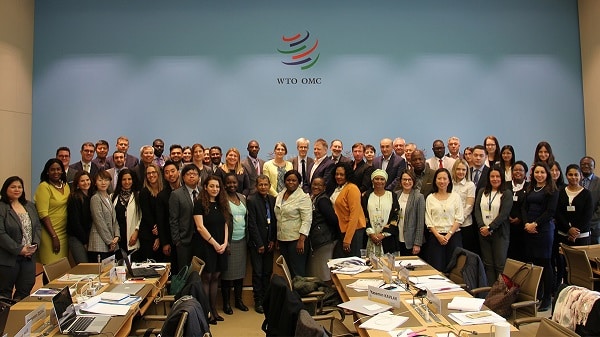Concluye en Ginebra el taller sobre contratación pública
Unos 50 altos funcionarios gubernamentales de 42 Miembros y observadores de la OMC debatieron sobre el tema de la contratación pública en relación con el comercio, la buena gobernanza y el desarrollo sostenible

The purpose of the workshop was to foster dialogue among experts from across the world and to provide them with tools for the analysis, design and implementation of government procurement policies at the national level, including market opening, reforms and capacity-building. The participants pooled their knowledge with experts from international organizations and academia, including the George Washington University Law School, the University of Nottingham School of Law, the European Bank for Reconstruction and Development, the World Bank, the OECD, the European Commission and the WTO Secretariat (for the full list of organizations, see below).
In his opening address on 13 May, WTO Deputy Director-General Xiaozhun Yi said: «This is a ‘flagship’ activity for us to disseminate information and foster dialogue on government procurement in all its dimensions. Government procurement is a key economic sector, representing 15 to 20 per cent of GDP in most economies. It has major implications for growth, competitiveness and the welfare of citizens.» His full speech is available here.
Particular focus was placed on the revised WTO Agreement on Government Procurement (GPA), under which WTO members open their procurement markets in a reciprocal manner to the extent that they so agree, and how it contributes to enhancing transparency and market access in this sector.
The GPA’s growing relevance in today’s global economy was emphasized, as evidenced by the increasing number of WTO members seeking to join the Agreement (most recently, on 5 May 2019, Australia became the 48th GPA party). Participants also looked into the potential benefits of participating in the WTO Committee on Government Procurement as observers. The number of such observers has been increasing and diversifying over the recent years. In May 2019, two WTO members sought observer status: the Philippines (requested on 6 May) and Ecuador (requested on 14 May). Both requests will be considered by the Committee when it next meets on 26 June 2019.
The workshop looked at how the GPA can better respond to the evolving global policy landscape that now embraces areas such as e-procurement, small and medium-sized enterprises (SMEs) and sustainable public procurement. It also considered the implications of such policies for future domestic reforms and for achievement of the United Nations Sustainable Development Goals. Synergies with other initiatives at the national, bilateral and regional levels were also discussed.
More information about the GPA can be found here.
Participating economies and institutions
Participants comprised some 50 senior officials with policy responsibility and/or a demonstrated background in trade and/or government procurement policy matters from the following 42 economies and one institution.
Economies: Argentina; Belarus; Bolivia, Plurinational State of; Botswana; Brazil; Canada; China; Colombia; Costa Rica; Côte d’Ivoire; Czech Republic; Dominica; Dominican Republic; Ecuador; Egypt; Equatorial Guinea; Honduras; Hong Kong, China; India; Indonesia; Korea, Republic of; Kyrgyz Republic; Madagascar; Malawi; Mali; Mauritius; Moldova, Republic of; Nepal; Nigeria; Peru; Philippines; Russian Federation; Saint Kitts and Nevis; Senegal; Singapore; Sri Lanka; Tajikistan; Togo; Turkey; Uganda and Ukraine.
Institution: Eurasian Economic Commission
Speakers’ organisations
The workshop benefited from the inputs of policy practitioners and experts from academia, international organisations and national authorities including the following: the Asian Development Bank; the Canadian Permanent Mission in Geneva; the Central European University; the European Bank for Reconstruction and Development; the European Commission; the George Washington University Law School; the OECD; the Open Contracting Partnership; the Swiss Federal Administrative Court; the University of Nottingham School of Law; the World Bank; and the WTO Secretariat.
















